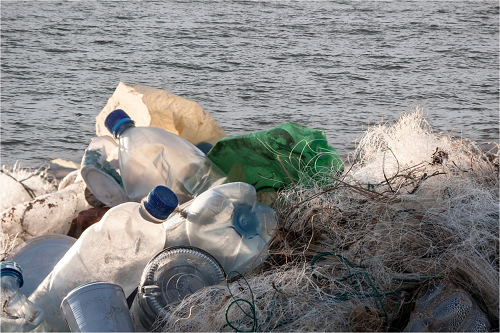N.B. Nair
Chennai (ISJ): Indian marine scientists are close to developing biodegradable plastic from marine seaweed, which has the potential to bring down the use of synthetic polymer-based plastics.
Currently, the biodegradable plastic is under development at the National Institute of Ocean Technology (NIOT) in Chennai and a team of scientists led by Dr. Gopal Dharani, Head of Marine Biotechnology is studying its physical and mechanical properties.
“We are in different stages of development and yet to finalise a product. We are trying to develop different seaweed polymers for biodegradability and bioplastics. We have teamed up with a bioplastic manufacturing compnay develop the product,” Dr Dharani told Indian Science Journal.
Dr Dharani said, his team has not firmed up any specific product as of now. A polyester and bioplastic manufacturing company is coming up with an incubation programme. They would identify what could be the commercial value, where it could be identifiedand where it would be utilised based on the technical feasibility and cost, he added.
Alternative to Synthetic Plastic
Conventional plastics pose a grave threat to soil and water, by forming hazardous chemicals that ultimately leach into the environment. It takes hundreds of years to break down. Bioplastics made from seaweeds have the same quality as in those made from plant materials like corn starch and sugarcane. It would be more sustainable and bring down the use of biomass for feedstock.
Marine red algae like Kappaphycus alvarezii has proven as commercial source of carrageenan and other products that have wide range of industrial applications. These algae are highly colloidal and are found to be cheap to grow within a short cultivation time – 45 days, by just using sunlight without the need for freshwater or chemicals.
Kappa is also a potential source of polymers similar to the terrestrial plant-based polymers that are used to manufacture food packaging and carry bags which facilitate good oxygen and moisture permeability. As good oxygen and moisture permeability are two essential parameters for the packaging of fresh produce to extend their shelf life, NIOT scientists suggest that red seaweed could be environmental-friendly when it comes to replacing harmful plastics.
NIOT scientists utilized various seaweeds collected from Gulf of Mannar region for bioplastic film production with the plasticizer polyethylene glycol (PEG)-3000 to achieve higher tensile strength. PEG is widely used in medical applications and even in cosmetics (make creams and dispersing agents) and it is eco-friendly plasticizer, mainly used to increase the thermos-plasticity of the polymer.
The results of the various literature study revealed that bio-plastic polymers can degrade naturally in a short time without producing any toxic wastes. These can also be disposed of through ordinary food waste collection mechanism and biodegradable. The study suggests that commercial manufacturing of bio-plastics from these seaweeds would be a game-changer in the coming times.
The result of the study was published in the Journal Environmental Science and Pollution Research.
Source: Inputs from India Science Wire
Image: Representative for Marine Plastic Pollution


